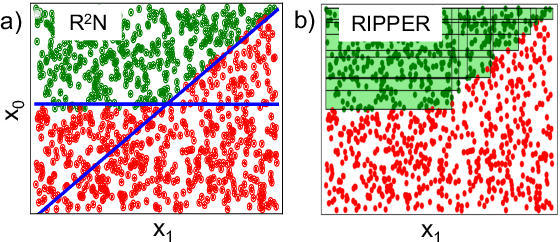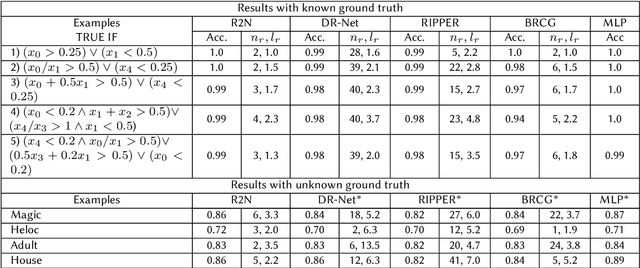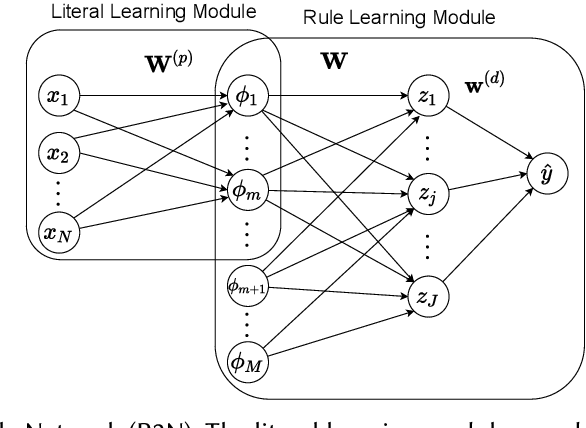Christian de Sainte Marie
Differentiable Rule Induction with Learned Relational Features
Jan 17, 2022



Abstract:Rule-based decision models are attractive due to their interpretability. However, existing rule induction methods often results in long and consequently less interpretable set of rules. This problem can, in many cases, be attributed to the rule learner's lack of appropriately expressive vocabulary, i.e., relevant predicates. Most existing rule induction algorithms presume the availability of predicates used to represent the rules, naturally decoupling the predicate definition and the rule learning phases. In contrast, we propose the Relational Rule Network (RRN), a neural architecture that learns relational predicates that represent a linear relationship among attributes along with the rules that use them. This approach opens the door to increasing the expressiveness of induced decision models by coupling predicate learning directly with rule learning in an end to end differentiable fashion. On benchmark tasks, we show that these relational predicates are simple enough to retain interpretability, yet improve prediction accuracy and provide sets of rules that are more concise compared to state of the art rule induction algorithms.
 Add to Chrome
Add to Chrome Add to Firefox
Add to Firefox Add to Edge
Add to Edge